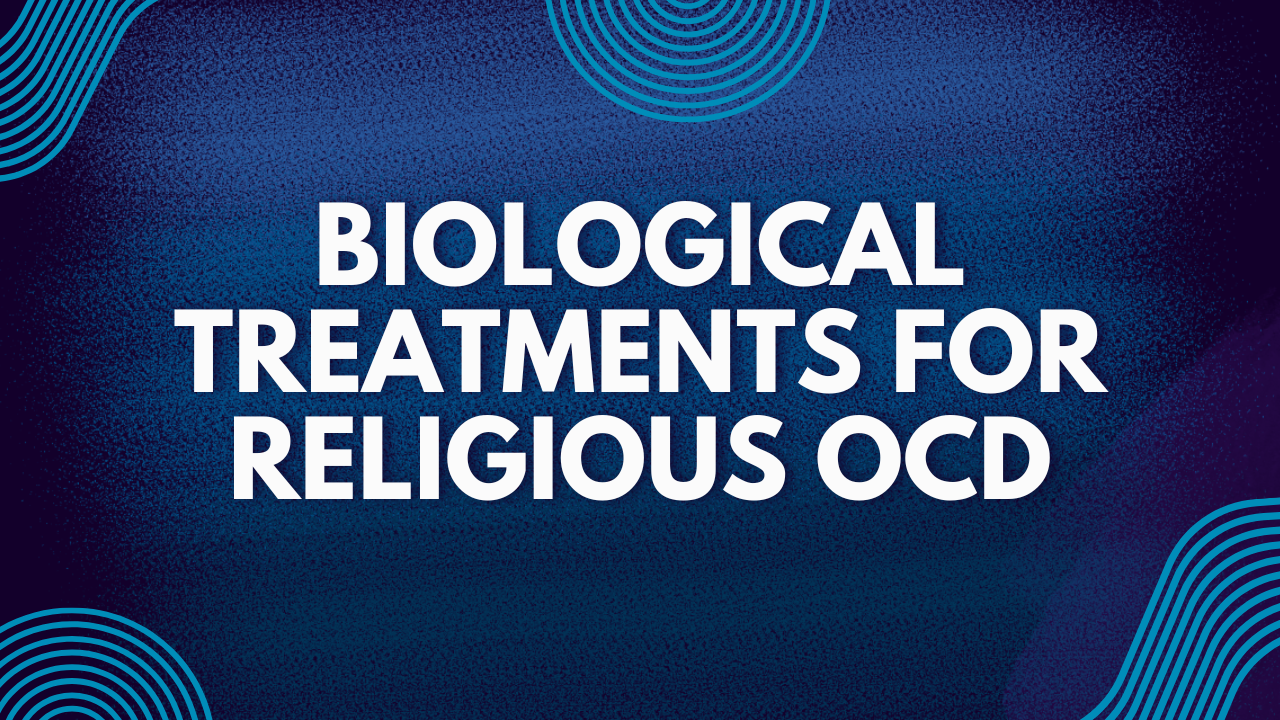
Biological Treatments for Religious OCD: How Medication and Supplements Can Help
Biological factors play a significant role in OCD. Understanding how medication and supplements can help manage Religious OCD symptoms is part of embracing the tools God has made available for healing.
Introduction
For Christians struggling with Religious OCD, the idea of taking medication can feel confusing or even uncomfortable. Some may wonder, “Shouldn’t I just pray harder or have more faith?” But just as we use glasses to help with vision or casts to heal broken bones, medication can be one of God’s provisions to help those struggling with OCD. Recognizing that mental health conditions often have biological components allows us to approach treatment with both wisdom and humility.
The Role of Medication in Treating OCD
Research shows that medications, particularly certain types of antidepressants known as SSRIs (Selective Serotonin Reuptake Inhibitors), can significantly reduce OCD symptoms. These medications help regulate brain chemistry and reduce the intensity and frequency of obsessive thoughts and compulsions.
- What to Expect – Medications typically reduce symptoms by around 30-40%. Some individuals experience more improvement; others may need additional support through therapy.
- Patience Is Key – OCD medications often take 8-12 weeks to show full effects and may require adjustments in dosage.
- Common Medications – Examples include fluoxetine (Prozac), sertraline (Zoloft), fluvoxamine (Luvox), and clomipramine (Anafranil).
- Medication Is Not a Lack of Faith – Taking medication is not about spiritual weakness; it’s using a tool that God has allowed us to discover for physical and mental health.
A Story to Remember
There’s a well-known story of a man caught in a hurricane, standing on his rooftop, praying for God to save him. Soon, a neighbor arrives with a truck and offers help, but the man declines, saying, “I’m waiting for God to save me.” Later, a rescue boat comes by, but again he refuses. Finally, a helicopter arrives, and once more, he turns down the rescue. The man eventually drowns, and when he reaches heaven, he asks God why He didn’t save him. God responds, “I sent you a truck, a boat, and a helicopter.”
In the same way, God often provides help through practical means — doctors, medication, therapy, and community support. Ignoring these tools while hoping for a different form of deliverance can mean missing the very provision God has lovingly placed in front of us.
Supplements That May Help
While supplements should never replace prescribed treatments, some may provide additional support:
- N-Acetylcysteine (NAC) – Some studies suggest that NAC, an antioxidant, may help reduce obsessive thoughts.
- Omega-3 Fatty Acids – These have been linked to improved mood and brain health.
Always consult with a healthcare provider before starting any supplements. These supplements have been studied as adjunctive treatments alongside SSRIs, but on their own, they are likely not very effective in treating OCD.
Combining Biological Treatments with Faith and Therapy
Medication and supplements are not standalone cures but part of a broader treatment plan. When combined with therapy—particularly Exposure and Response Prevention (ERP)—and a grace-based understanding of faith, they can make a world of difference.
- Prayerfully Consider Treatment – Seek wisdom, talk with trusted Christian counselors or medical professionals, and pray for discernment.
- Lean on Scripture – Remember passages like James 1:5: “If any of you lacks wisdom, let him ask God, who gives generously to all without reproach, and it will be given him.”
- Trust God’s Provision – Whether it’s medication, therapy, or community support, all good things come from His hand.
What’s Next?
In the next article, we will explore TMS (Transcranial Magnetic Stimulation) and its role in treating OCD, including how it may help those for whom medications and therapy have not provided sufficient relief.
More on that next week…
For Kentucky Residents
If you live in Kentucky and are seeking support for religious OCD or scrupulosity, our team at Next Step 4 Mental Health in Louisville is here to help. We offer compassionate, evidence-based care—both in-person and through telehealth—for children, teens, and adults.


For Those Outside Kentucky
If you’re not a Kentucky resident, we encourage you to seek care from a licensed mental health provider in your area. Professional support can be a vital step toward healing and peace.
Note: This article is for educational purposes only and is not intended as medical advice. Please consult a licensed mental health provider for appropriate care.
Related Posts
Understanding Religious OCD: What It Is and Why It Matters
May 1, 2025
This blog is part of the Religious OCD Series by Dr. Brian Briscoe....
7 Things Teens with OCD Need to Know
June 24, 2022
Obsessive-compulsive disorder, more commonly called OCD, is a chronic mental...



